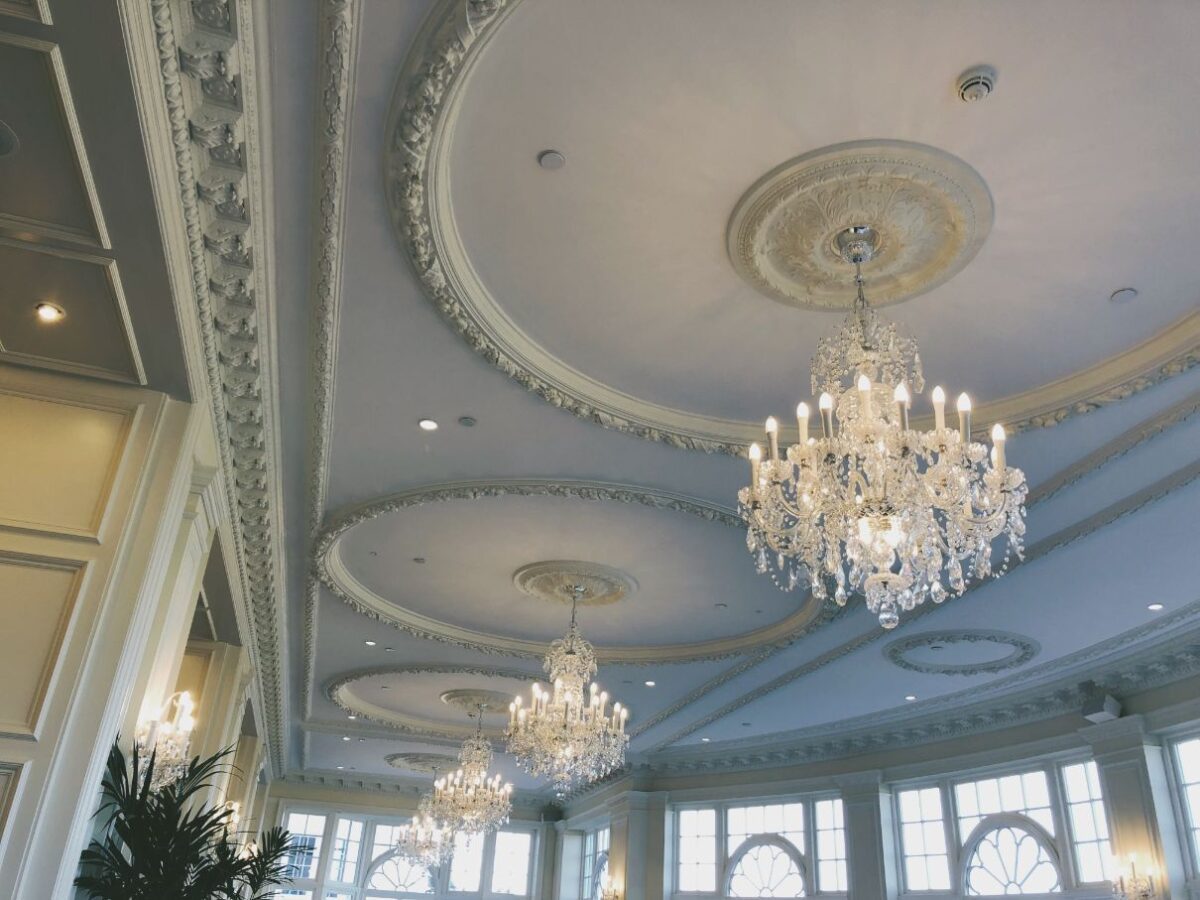Imagine searching for a home in bustling Toronto. You notice schools often come up in conversations, reflecting their integral role in family life and community vitality. As you delve into options, you’ll quickly encounter a distinctive feature of Toronto’s educational landscape—’ dual systems’—public and Catholic schools, each with their own culture, administration, and curricular focus that may influence your choice of neighbourhoods. Here is a comprehensive comparison of Catholic vs public schools in Toronto.
Educational Philosophies Compared
In my experience as a Toronto realtor, I’ve seen that Catholic schools typically integrate a faith-based culture throughout their curriculum, emphasizing moral and spiritual development alongside academic pursuits. This distinct perspective aims to foster a community where values and education walk hand in hand, creating an environment that encourages students to develop not only intellectually but also ethically.
Conversely, public schools in Toronto are committed to a secular educational approach, ensuring a learning environment that is inclusive and diverse. Here, the focus is on equipping students with a rich array of knowledge and critical thinking skills catered to a multicultural city. The separation of faith from the classroom provides a platform for students to explore a variety of worldviews, promoting tolerance and a deeper understanding of the tapestry of cultures that make up our communities.
Teachings in Catholic vs Public Schools
Catholic schools in Toronto weave religious teachings into the fabric of their education, nurturing both the mind and the soul. Moral frameworks derived from Catholic doctrine guide academic instruction and student interaction, aiming to develop well-rounded individuals.
In contrast, Toronto’s public schools take a neutral stance on religion, favoring a curriculum that is secular and inclusive. Steeped in pluralism, these institutions offer an educational experience that’s reflective of the city’s diverse demographic, respecting every student’s background.
Toronto’s Catholic schools require students to take religious education throughout all grades.
Navigating within a secular framework, public schools in Toronto deliver an unbiased education that prepares students for a world of diverse beliefs. Here, critical thinking and factual learning are cornerstones, equipping young minds to thrive in our complex, pluralistic society.
Community Involvement and Values
Community involvement in education helps instill a sense of belonging and responsibility. In Toronto, both Catholic and public schools recognize its importance, but they approach it with different emphases.
- Service and Outreach: Catholic schools often encourage service as an expression of faith, with students participating in charitable work and community service projects.
- Moral and Ethical Education: A key component in Catholic schools is the moral and ethical development of students, aligned with Christian values.
- Equity and Inclusion Programs: Public schools frequently prioritize equity and social justice initiatives, reflecting a dedication to inclusivity and diverse community representation.
- Parent and Community Engagement: Both systems value strong relationships with parents and the wider community, fostering support networks for student success.
Public schools focus on producing civically engaged citizens through an inclusive approach that embraces Toronto’s multicultural tapestry.
Catholic schools, meanwhile, blend community service with spiritual growth, fostering values steeped in their religious ethos.
Curriculum Structure and Content
In the Toronto education landscape, both public and Catholic schools adhere to curricula outlined by the Ontario Ministry of Education, ensuring that core academic standards are met across each system. However, Catholic schools incorporate religious education into their daily teachings, with courses in faith and values woven seamlessly into the fabric of their curricula, setting them apart from their public counterparts.
Public schools, on the other hand, offer a secular curriculum with no religious affiliation, encouraging a broad spectrum of thought and a focus on critical thinking skills. They cater to a diverse student body with an array of beliefs and cultural backgrounds, promoting a multicultural environment where inclusivity and global awareness are prioritized.
Religious Education in Catholic Schools
In Catholic schools, religious education isn’t just a subject; it’s integral to the school’s identity. Daily prayer, as well as religious symbols and celebrations, are ubiquitous, underscoring the importance of faith in the community.
Classes include comprehensive catechism, ensuring students understand Catholic doctrines and beliefs. Moral and ethical teachings are also key components of this education.
Religious education curriculum in Catholic schools typically extends beyond mere knowledge of the church. It encourages students to engage in their faith, develop spirituality, and apply Christian principles to real-world situations, creating a bridge between education and personal growth.
Faith formation in Catholic schools also obliges students to participate in masses and liturgical celebrations. Service is an educational pillar, often involving opportunities to help those in need – a tangible expression of faith. As a result, students learn to “walk the walk” of Catholic teachings, embodying these values in their actions both within and outside the classroom walls.
Common Learning Objectives Across Boards
Despite different educational ideologies, both boards strive to foster well-rounded students.
- Literacy and Numeracy: Mastery in reading, writing, and mathematics
- Critical Thinking: Encouraging analytical and logical reasoning skills
- Collaboration: Promoting teamwork and cooperative learning
- Creativity and Innovation: Cultivating artistic expression and problem-solving
- Citizenship: Teaching respect for diversity and civic responsibility
- Physical Health and Education: Maintaining active, healthy lifestyles
- Environmental Awareness: Instilling respect and care for the planet
Much attention is given to preparing students for future academic and professional challenges.
Both systems aim to equip students with the tools necessary for lifelong learning and success.
Extracurricular Activities and School Culture
Extracurricular activities play a pivotal role in shaping the school culture, and both Catholic and public schools in Toronto offer a variety of programs that reflect their unique ethos. Catholic schools often infuse faith-based elements within their extracurricular activities, using these as vehicles to extend the teachings of the classroom. Public schools, on the other hand, might focus more on inclusivity and diversity, fostering environments where students from various backgrounds can connect and learn from one another.
When considering extracurriculars, think of it as a mosaic of opportunities, each piece reflecting a facet of the school’s character. Catholic schools may lean towards service-oriented clubs, or groups that engage with the broader community in charitable works—these are intrinsic to their mission of fostering a ‘whole person’ development underpinned by spiritual growth. Public schools often boast a broad spectrum of clubs and teams, ranging from the arts to sciences, where the emphasis is on embracing a variety of interests and talents, all contributing to a well-rounded educational experience.
Worship and Service in Catholic Programs
In Catholic schools, spiritual development is interwoven with the curriculum, emphasizing communal worship and service.
- Morning Prayer: Daily collective prayers set a contemplative tone.
- Religious Celebrations: Schools observe liturgical events like Mass and Easter.
- Community Service: A focus on altruistic projects is prevalent.
- Retreats: Students participate in spiritual or service-oriented retreats.
- Faith Leadership: Opportunities for students to lead and engage peers in faith activities.
These activities foster a sense of shared faith and community responsibility.
Moreover, they’re designed to cultivate compassionate, service-minded individuals, aligned with Catholic values.
Diversity of Clubs and Teams in Public Schools
Public schools in Toronto are melting pots of diversity, where every student can find a club or team that resonates with their interests, passions, or cultural backgrounds. Beyond the basic educational mandate, these extracurricular activities are key to the holistic development of students.
From robotics clubs to eco-friendly initiatives, every student finds a niche to thrive. Each club promotes skills beyond textbooks.
Creativity flourishes in arts and drama societies, while competitive spirits soar in various sports teams. These platforms encourage teamwork and individual growth.
Public schools also offer language and culture clubs, celebrating the rich tapestry of our society. These spaces affirm the city’s multicultural ethos, foster inclusivity and build cross-cultural understanding.
Students with a passion for debate or public speaking find their voice in dedicated clubs, honing their rhetorical skills in hefty competitions. Such extracurriculars fuel confidence and critical thinking.
Overall, our public schools embrace each student’s unique path to self-discovery. They craft environments where varied experiences shape well-rounded, engaged, and empathetic citizens.
Admission Policies and School Choice
When navigating Toronto’s educational landscape, admission policies are a primary consideration for families. Public schools generally accept all students within their catchment area, offering straightforward enrolment based on place of residence.
In contrast, Toronto’s Catholic schools require at least one parent or child to be baptized Catholic as part of their admissions criteria. These schools blend spiritual growth with academic learning, thereby necessitating this faith-based prerequisite.
The concept of “school choice” thus becomes nuanced depending on the family’s religious affiliations and their proximity to desired schools.
Baptismal Requirements for Catholic Schools
In Toronto’s Catholic schools, baptism is essentially your child’s entry ticket; without it, admittance isn’t a given. It’s a key step that reflects a family’s commitment to the Catholic faith.
Proof of baptism is non-negotiable when considering Catholic education. This policy underpins the school’s religious culture.
The requirement isn’t merely administrative. It serves as a sign of intention to participate in the broader Catholic community, which includes religious instruction and participation in the sacraments. While some exceptions may exist for non-Catholic students (often based on space availability), the core expectation is that Catholic students and families engage actively with faith-based education and practices.
Neighborhood Zones for Public Schools
In Toronto, public schools operate under a catchment area policy, meaning your home address dictates your designated local school. This helps maintain manageable class sizes and fosters community continuity.
School boundaries can sometimes shift, affecting local enrollment patterns.
When considering a move, it’s critical to confirm the catchment school for a specific address, as these boundaries are subject to change. What may now seem like a settled choice could evolve with demographic shifts and policy adjustments.
Families should be aware that admission priorities are given to students residing within their school’s catchment area. In some cases, if a school is at capacity, living in the catchment zone may not guarantee admission. It’s essential to check the latest enrollment policies with the Toronto District School Board or the specific school in question.
One of the best aspects of Toronto is how welcoming it is for your whole family! Find out more in the posts below:
- Toronto: A Pet-Friendly City that Welcomes Furry Companions
- Does Toronto Have World-Class Amenities?
- Best Toronto Neighbourhoods For Small Kids
What are the tuition fees: Catholic vs public schools in Toronto?
As a subject matter expert in the real estate market in Toronto, I understand how important it is for buyers and sellers to be informed about various aspects of living in this vibrant city. One question that often arises when considering a move to Toronto is, “What are the tuition fees for Catholic and public schools in Toronto?”
When it comes to education options for families in Toronto, there are two main types of schools to consider: Catholic schools and public schools. Both offer excellent educational opportunities, but it’s essential to understand the differences in tuition fees.
Catholic schools in Toronto are publicly funded, which means they generally do not charge tuition fees. However, they may have additional costs such as uniform expenses or activity fees. These fees can vary between schools, so it’s advisable to contact the specific Catholic school you’re interested in to obtain accurate information about any supplementary expenses.
On the other hand, public schools in Toronto are funded by tax dollars and are therefore free for all residents. Public schools provide a high standard of education and offer a wide range of programs and resources to support student learning.
It’s important to note that both Catholic and public schools in Toronto have enrollment criteria and application processes. Parents should contact their desired school directly to inquire about these requirements and any associated fees.
Ultimately, the decision to choose between Catholic and public schools in Toronto depends on individual preferences, beliefs, and educational goals. It’s crucial to research and consider all aspects when making this decision to ensure the best educational fit for your family.
In summary, while Catholic schools in Toronto generally do not charge tuition fees, they may have additional costs such as uniforms or activities fees. Public schools, on the other hand, are funded by tax dollars and do not require tuition payments.
Are there any notable differences in terms of class sizes in Catholic vs public schools in Toronto?
When comparing Catholic and public schools in Toronto, there are some notable differences in terms of class sizes. These differences can have an impact on the learning experience for both students and teachers.
In general, Catholic schools in Toronto tend to have slightly smaller class sizes compared to public schools. This means that there are usually fewer students in each classroom, allowing for more individual attention and a potentially more focused learning environment.
Smaller class sizes in Catholic schools can be beneficial for students as they allow for more personalized instruction and one-on-one interaction with teachers. Students may have more opportunities to ask questions, participate in class discussions, and receive individualized support when needed. This can contribute to a richer and more engaging educational experience.
For teachers, smaller class sizes provide them with the ability to better cater to the needs of each student. They can dedicate more time to understanding the strengths and weaknesses of each individual and tailor their teaching approaches accordingly. This can result in more effective instruction and a greater ability to meet the diverse learning needs of students.
However, it’s important to note that class sizes can vary depending on several factors, including the specific school and grade level. Parents and students should inquire about class sizes and consider this factor alongside other important criteria when choosing between Catholic and public schools in Toronto.
Overall, while there may be a slight difference in class sizes between Catholic and public schools in Toronto, the key is to find an educational environment that best suits the needs and preferences of the individual student.
How do the graduation rates compare between Catholic and public schools in Toronto?
Graduation rates are an important factor to consider when evaluating the performance and success of schools. In Toronto, both Catholic and public schools have their own unique characteristics that may influence the graduation rates.
When examining the graduation rates between Catholic and public schools in Toronto, it is crucial to understand that there are various factors to consider. These factors can include the educational programs, teaching methods, school resources, and the individual needs of the students.
Catholic schools in Toronto often have a strong emphasis on religious education alongside the standard curriculum. This faith-based approach can create a supportive and nurturing environment that promotes academic success. The focus on moral values can also contribute to a sense of community and personal development.
On the other hand, public schools in Toronto are known for their commitment to inclusivity and diversity. They strive to provide equal opportunities to all students, regardless of their religious or cultural background. Public schools often have a wider range of programs and extracurricular activities, allowing students to explore their interests and talents.
When it comes to graduation rates, it is difficult to make a blanket statement about which type of school performs better. Each school has its own unique strengths and challenges that can impact graduation rates. It is important for parents and students to consider various factors, such as school resources, teaching quality, and extracurricular opportunities, when making a decision about which school to choose.
Ultimately, the success of a student in completing high school is influenced by a combination of factors, including their individual abilities, support from teachers and parents, and the overall school environment. When comparing graduation rates between Catholic and public schools in Toronto, it is essential to consider the specific context and characteristics of each school. By taking these factors into account, individuals can make informed decisions when it comes to selecting the right educational institution for their needs.
Do you need guidance in choosing a neighbourhood to settle down in? I am happy to help you analyze schools and select an option that meets your needs, budget, and other important aspects.
Reach out 647-294-3039 or by email at olena@agentolena.com for more information.













